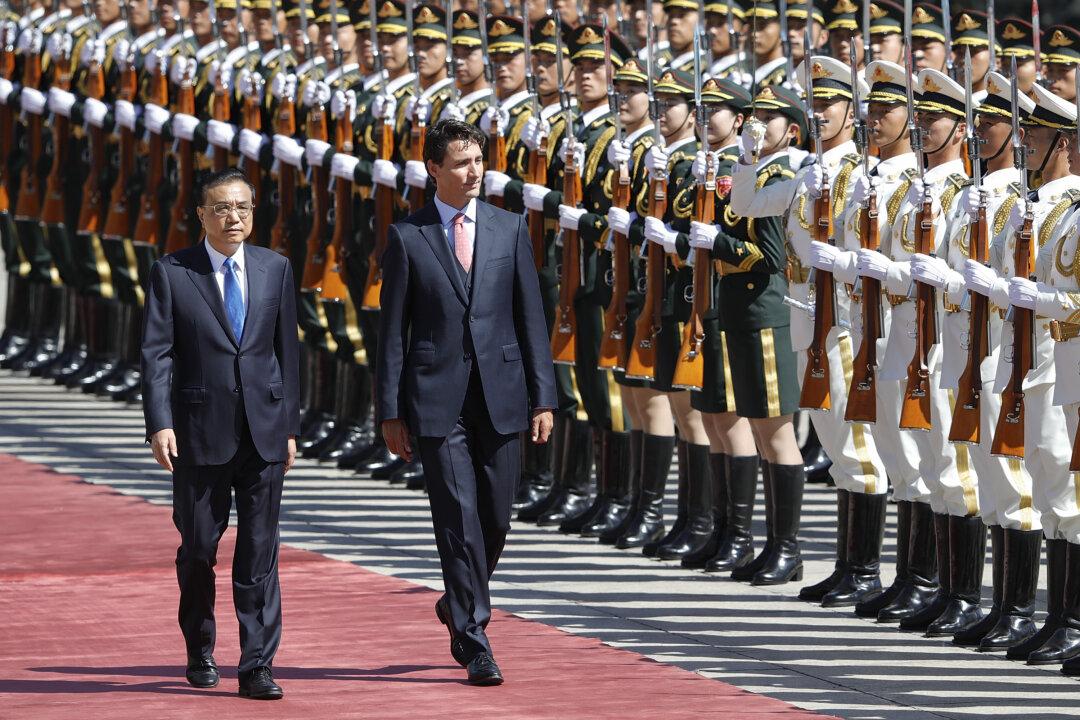NEWS ANALYSIS
Canada’s Pursuit of Free Trade with a State-Run Economy
As Trudeau heads to China, opposition parties and Canadians warn of the pitfalls of a free trade deal with Beijing

Chinese Premier Li Keqiang accompanies Canadian Prime Minister Justin Trudeau outside the Great Hall of the People on Aug. 31, 2016 in Beijing. Lintao Zhang/Getty Images
|Updated:




